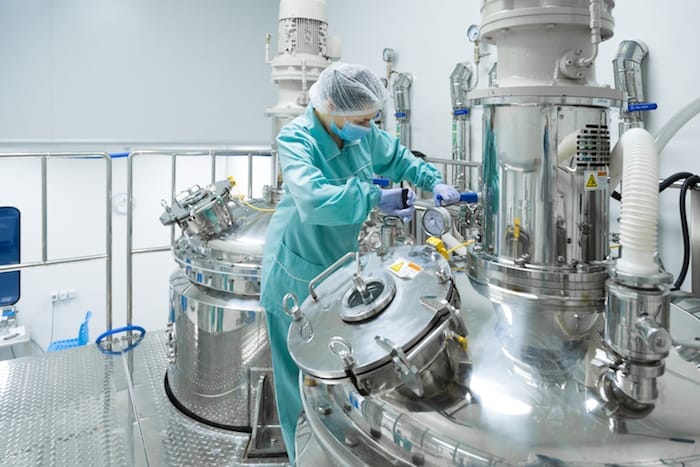Medicines are crucial to the health of humans around the globe. It’s essential that these drugs have quality assurance, quality of production, and technical rigor that ensure efficiency, especially the desired effects for the medication they’re prescribed. They must correctly and effectively fulfill their roles in the patients’ health. For these and other reasons, pharmaceutical testing is of utmost importance. Read on below to learn more about this procedure.
Pharmaceutical Testing: What Is It?
Pharmaceutical testing equipment can include friability testers, dosage form testing and processing, active pharmaceutical ingredient (API) formulation, and more. It encompasses a wide variety of disciplines.
Specific testing considerations and requirements will vary based on cost and regulatory compliance when choosing pharmaceutical testing equipment. Other deciding factors are analysis time and throughput. It’s essential to note that pharmaceutical testing takes place from the formulation up to the development and manufacturing processes. That being said, many biopharma companies choose to partner with pharmaceutical testing services, like Avomeen, to obtain support from a therapeutic concept to marketing and beyond.
Here are the reasons why pharmaceutical testing is a must in the healthcare industry:
1. To Ensure Public Safety
Just because a new compound or drug was discovered doesn’t necessarily mean that it’s safe for human use. Mixing the wrong types of chemicals can result in irreversible consequences. They contain different compounds, and putting too little or too many of a particular compound may lead to side effects and health risks.
Pharmaceutical products are developed to treat health conditions and diseases, so testing is necessary to ensure that they’re safe for use. Without the testing stage, the health of patients isn’t the only thing at risk. Even the reputation of healthcare professionals, especially doctors, will also be put on the line. Pharmaceutical testing aims to ensure the safety of new products and that they don’t bring adverse side effects to patients before physicians can prescribe them.
2. To Establish Efficacy
Pharmaceutical testing is also done to establish the efficacy of a new drug, aside from ensuring its safety. Pre-clinical trials are usually performed on animals, but results still need further testing on humans since each person has a unique genetic makeup. That being said, the response to medicine will differ from person to person.
By checking how a drug cures a disease or alleviates symptoms through clinical testing, the pharmaceutical company or a third-party firm can validate its effectiveness. The results will aid in translating the research for real-world applications.
3. To Establish Stability
Stability testing assesses how drug quality (including the packaging of the drug substance or product) varies with time under the influence of light, humidity, temperature, and other environmental factors. It’s an essential step in the drug approval process. The process determines whether any microbiological, chemical, or physical changes affect the final product’s efficiency and integrity. It ensures that a pharmaceutical product is effective and safe, irrespective of which part of the world it will be supplied. Also, stability testing establishes the recommended storage conditions and shelf life of a finished drug and its retest periods.

4. To Confirm Correct Dosages
Pharmaceutical testing may start with a low dose and increasing it until the optimal dosage is achieved. The correct dosage must also be reported to the Food and Drug Administration by the manufacturer, so pharmaceutical companies won’t stop at establishing the new drug’s efficacy. The testing of new pharmaceutical products, indeed, is instrumental in confirming the correct dosages for treatment procedures.
5. To Compare With Existing Drugs
Pharmaceutical companies can refer to the different research studies of existing drugs to help them come up with a new product with improved efficacy or fewer side effects. However, it’s essential to note that existing medications aren’t necessarily better than new pharmaceutical medications.
In essence, pharmaceutical testing paves the way for future research, which will only benefit the entire pharmaceutical and healthcare industry.
Comparisons also work both ways. For example, drug manufacturing companies with existing products in the market can improve their medications by utilizing the insights of new product research.
6. To Avoid Huge Losses
A pharmaceutical company will only incur huge losses when their products are recalled. These include lawsuits filed by government authorities and consumers, damage to brand reputation, reduced customer confidence, and loss of sales. As such, all drug manufacturing companies must thoroughly perform pharmaceutical testing of their environments, techniques, equipment, processes, and materials used. For publicly traded pharma companies, testing is essential to ensure that their final products are effective, consistent, and safe, especially in the race for developing a COVID vaccine or treatment, if they want stocks to soar up.
Conclusion
Pharmaceutical testing aids healthcare research by ensuring safety, establishing efficacy, establishing stability, and confirming the right dosage of new drugs. Testing new pharmaceutical products is the best way to figure out what actually works and what doesn’t.
The Editorial Team at Healthcare Business Today is made up of skilled healthcare writers and experts, led by our managing editor, Daniel Casciato, who has over 25 years of experience in healthcare writing. Since 1998, we have produced compelling and informative content for numerous publications, establishing ourselves as a trusted resource for health and wellness information. We offer readers access to fresh health, medicine, science, and technology developments and the latest in patient news, emphasizing how these developments affect our lives.








